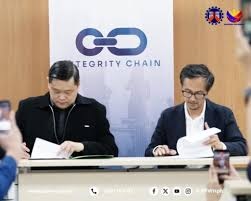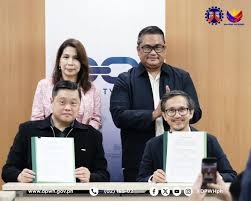Introduction: The Mandate for Purity in Public Works

In a clear and decisive move signaling an intensified commitment to accountability, the Department of Public Works and Highways (DPWH) has embarked on a comprehensive reform agenda mandated by President Ferdinand Marcos Jr. The centerpiece of this initiative is a rigorous, independent background check for 14 newly appointed senior officials and the establishment of powerful inter-agency partnerships aimed at tracking and recovering lost public funds. This aggressive stance, articulated by DPWH Secretary Vince Dizon, underscores the administration’s zero-tolerance policy toward corruption in infrastructure projects.
Secretary Dizon’s actions reflect the President’s explicit directive: to “clean up and not defend” the DPWH. This feature explores the unprecedented steps taken by the agency—from leveraging the expertise of the National Bureau of Investigation (NBI) and private sector organizations to forming alliances with the Anti-Money Laundering Council (AMLC) and the Philippine Competition Commission (PCC)—all designed to restore integrity and ensure that public funds are safeguarded and recovered.
External Vetting: A New Standard for DPWH Leadership
To ensure that the new leadership is “incorruptible and sincere,” Secretary Dizon has initiated an independent, third-party vetting process for 14 key appointees. This move is significant because it outsources the background check function, adding a layer of transparency and impartiality beyond the typical internal government review.
Dizon formalized this request by writing separate letters to the National Bureau of Investigation (NBI) and three prominent private-sector organizations: the Institute of Corporate Directors (ICD), the Management Association of the Philippines (MAP), and the Philippine Chamber of Commerce and Industry (PCCI).
The rationale behind this independent vetting:
Ensuring Integrity: The primary goal is to establish the highest standards of integrity for officials handling billions in public infrastructure funds.
Preventing Conflict of Interest: By engaging corporate governance and business leaders (ICD, MAP, PCCI), the DPWH seeks a deeper understanding of any potential conflicts of interest or prior questionable business dealings.
Leveraging Expertise: The NBI’s involvement is critical for criminal and security clearance, while the private groups provide insights into professional conduct and corporate ethics.
“This initiative reflects our shared belief that transparency should not only govern the implementation of public infrastructure projects, but also guide the selection and evaluation of the men and women entrusted to lead them,” Dizon stated in his request, emphasizing that the focus on “cleaning up” starts right at the top with leadership selection.
The high-ranking officials subject to this scrutiny include a roster of seasoned and new appointees, ranging from the Senior Undersecretary to various Assistant Secretaries: Senior Undersecretary Emil Sadain; Undersecretaries Arthur Bisnar, Ador Canlas, Nicasio Conti, Charles Calima, Samuel Rufino Turgano, Ricardo Bernabe III, and OIC-Undersecretary Lara Marisse Esquibil; and Assistant Secretaries Nerie Bueno, Medmier Malig, Michael Villafranca, Constante Llanes, Jr., Michelle De Vera, and Suzanne Marie Liwanag.
Partnership I: Hunting Down Illicit Wealth with the AMLC

Beyond personnel reforms, the DPWH is actively engaging in a financial offensive to claw back public money lost to fraud. This effort was cemented by the signing of a Memorandum of Agreement (MOA) with the Anti-Money Laundering Council (AMLC).
This partnership is a game-changer in the fight against infrastructure corruption, shifting the focus from merely canceling anomalous contracts to actively seizing ill-gotten gains.
Key Provisions and Impact of the DPWH-AMLC MOA:
-
Financial Investigation: The two agencies agreed to cooperate by providing information necessary for a “comprehensive financial examination and investigation” of transactions involving former DPWH officials and contractors implicated in the now-infamous anomalous flood control projects.
Expedited Fund Recovery: The MOA is designed to “expedite the recovery of public funds” by monitoring and investigating money laundering transactions and other financial crimes.
Asset Freezing: The agreement speeds up the process to freeze the bank accounts of involved individuals, in full accordance with the Anti-Money Laundering Act.
The necessity of this partnership was starkly highlighted by the AMLC’s efforts. AMLC Executive Director Matthew David revealed that his agency has already taken “swift action” in freezing almost 2,000 accounts related to the flood control mess, securing approximately $\text{PhP}5.2 \text{ billion}$ worth of assets linked to the implicated officials and contractors.
Secretary Dizon passionately quoted President Marcos Jr. on this goal: “We must return this money that was lost to our countrymen.” This signifies that the ultimate beneficiaries of this anti-corruption drive are the Filipino taxpayers.
Partnership II: Ensuring Fair Competition with the PCC
The second critical partnership was formalized through a separate MOA signed between the DPWH and the Philippine Competition Commission (PCC), chaired by Michael Aguinaldo. This alliance addresses a root cause of corruption: bid rigging and procurement fraud.
The collaboration focuses on the proper implementation of Republic Act 10667, or the Philippine Competition Act, to ensure a “fair and unbiased contractor selection in projects.”
Key Provisions and Impact of the DPWH-PCC MOA:
-
Combating Bid Manipulation: The agencies agreed to expedite the referral and investigation of cases involving bidding fraud and manipulation by contractors.
Securing Recoveries: This initiative is aimed at the return of public money linked to both “ghost flood control and substandard projects” resulting from anti-competitive practices.
Long-Term Safeguard: Secretary Dizon touted the MOA as the “first of its kind in terms of public infrastructure,” establishing a long-term mechanism to “safeguard the people’s money” and recover funds lost due to “rigged procurement activities.”
Dizon extended gratitude to the PCC for its prompt action on 12 cases previously filed by the DPWH concerning bid rigging against five contractors, demonstrating that this partnership is already yielding tangible results.
Addressing the Political Noise: Calls for Fairness
Amidst the vigorous pursuit of corruption, a related political issue surfaced, prompting a call for “fairness and sobriety.” Dr. Jose Antonio Goitia, Chairperson Emeritus of the Alyansa ng Bantay sa Kapayapaan at Demokrasya (ABKD), released a statement responding to allegations linking First Lady Liza Araneta Marcos to supposed irregularities in flood control projects.
Goitia strongly condemned the baseless accusations, stating that “integrity should never be tried by gossip nor condemned by speculation.” He stressed that the First Lady is neither a public contractor nor a government official and is being “unfairly dragged into issues without proof.”
The ABKD leader warned against allowing the call to investigate the First Lady to become what he termed a “fishing expedition disguised as a crusade,” arguing that when an accusation is made without basis, it transitions from a civic act to “political demolition.” He vouched for the First Lady’s decades-long record as a lawyer and educator, reflecting professionalism, independence, and a commitment to operating “within the law and above partisanship.”
Conclusion: Rebuilding Trust, Recovering Funds
The DPWH’s multifaceted approach—combining external vetting of its leaders with powerful partnerships with the AMLC and PCC—marks a serious turning point in the governance of the Philippines’ public infrastructure. The simultaneous efforts to ensure the incorruptibility of new appointees and to criminally and financially pursue past offenders align perfectly with the Marcos administration’s mandate to restore public trust.
The $\text{PhP}5.2 \text{ billion}$ frozen assets stand as an immediate testament to the financial recovery component of this reform. As these high-profile investigations proceed, the commitment shown by Secretary Dizon and the DPWH suggests a long-overdue transformation, aiming to ensure that every peso allocated for infrastructure genuinely benefits the Filipino people, rather than lining the pockets of the corrupt.





